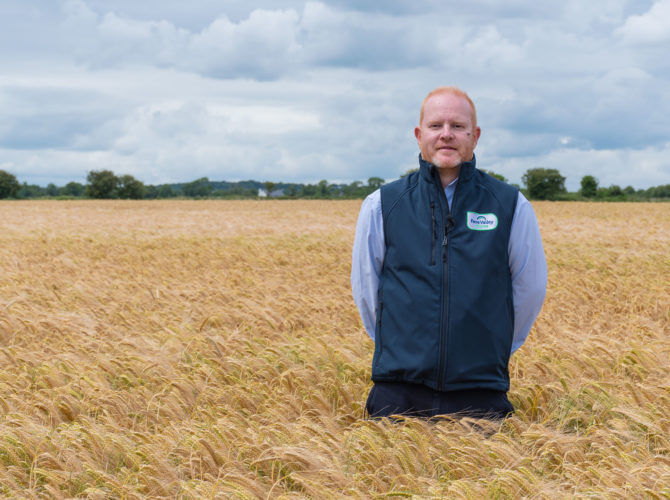Resilient Cropping Options for Spring 2025
20th February 2025

Resilience, the ability to bounce back from difficult conditions is crucial in arable crop production, due to the unpredictable nature of weather and growing seasons. The past two seasons have highlighted the variability we face, emphasising the need for adaptable, robust, dependable varieties. Harnessing the genetic strengths and resilience of new varieties is a key strategy for building resilience in sustainable farming systems. The Fane Valley portfolio of spring cereal varieties has been selected from the UK AHDB (Agriculture, Horticulture Development Board) and Irish DAFM (Department of Agriculture, Food and Marine) Recommended Lists and includes standout options across barley, wheat and oats.
Spring barley
Rockway and Skyway have demonstrated solid reliability at our trials farm over multiple seasons, pushing performance by delivering very high yields of well filled grains at harvest. Yielding 102% and 105% of the controls on the DAFM Recommended List, both have excellent resistance to mildew (8) and rhynchosporium (7) making them a robust choice.
Lollipop, a new slightly earlier maturing variety hits all the sweet spots combining very high yields (106%) with good grain quality and exceptional disease resistance scoring a triple 8 for mildew, rhynchosporium and net blotch.
SY Splendor remains a popular low-risk option, offering high untreated yield, good grain quality and good resistance to lodging. LG Diablo, while no longer the highest yielding variety, is still favoured on-farm for its high-quality grain and straw.
Spring wheat
KWS Fixum, Ladum and Cochise offer similar treated yields at just over 3.0t/acre and boast strong agronomic traits including good straw strength and disease resistance making them suitable for both combining and wholecrop use.
Spring oats
Husky, WPB Isabel and Merlin dominate the spring oat market, meeting milling specification with good kernel content, hullability and low screenings. While all three have a similar yield, Merlin gains points on strong resistance to mildew, a slightly stiffer straw and earlier maturity.
Whole-crop mixtures
Our ever-popular whole crop mixtures of barley and oats, and barley and peas can be made to order with protein content of the legumes adding to the feed value of the wholecrop silage.
Seed treatments
Seed treatments further push genetic performance by getting crops off to the very best possible start. Once drilled all spring crops need to grow unhindered. While weather and ground conditions will dictate growth rate and timing of field operations, we can use seed treatments to help mitigate risk.
Manganese seed treatment
Manganese seed treatments help combat hidden hunger, feeding the young seedling during early development keeping the plant heathy during this critical yield building phase of its life cycle. Priority should be given to fields ploughed for cereals after long-term grass, recently limed soils and soils with high P low K indices which are often low on manganese.
Biological seed treatments
Kick-Off rich in phosphite’s helps promote rooting and tiller retention building resilience in adverse spring conditions, while Tiros Max a new biological seed treatment exploits specialised bacteria to help solubilise locked up soil phosphate and make it available for to the crop. Additional bacteria enter the young plant and convert atmospheric nitrogen to crop available nitrogen acting like a back-up generator feeding the plant through the season helping to mitigate stress, enhancing plant health throughout the entire the growing season.
By combining resilient varieties with advanced seed treatments, we can help you push spring cereal performance in 2025. This integrated approach offers enhanced resilience against unpredictable weather, improved resource use efficiency, and the potential for higher yields and quality across diverse growing conditions.
For help on variety selection and seed treatment options best suited to your farm contact your local Fane Valley Agronomist or call the office on 028 9261 0485.

